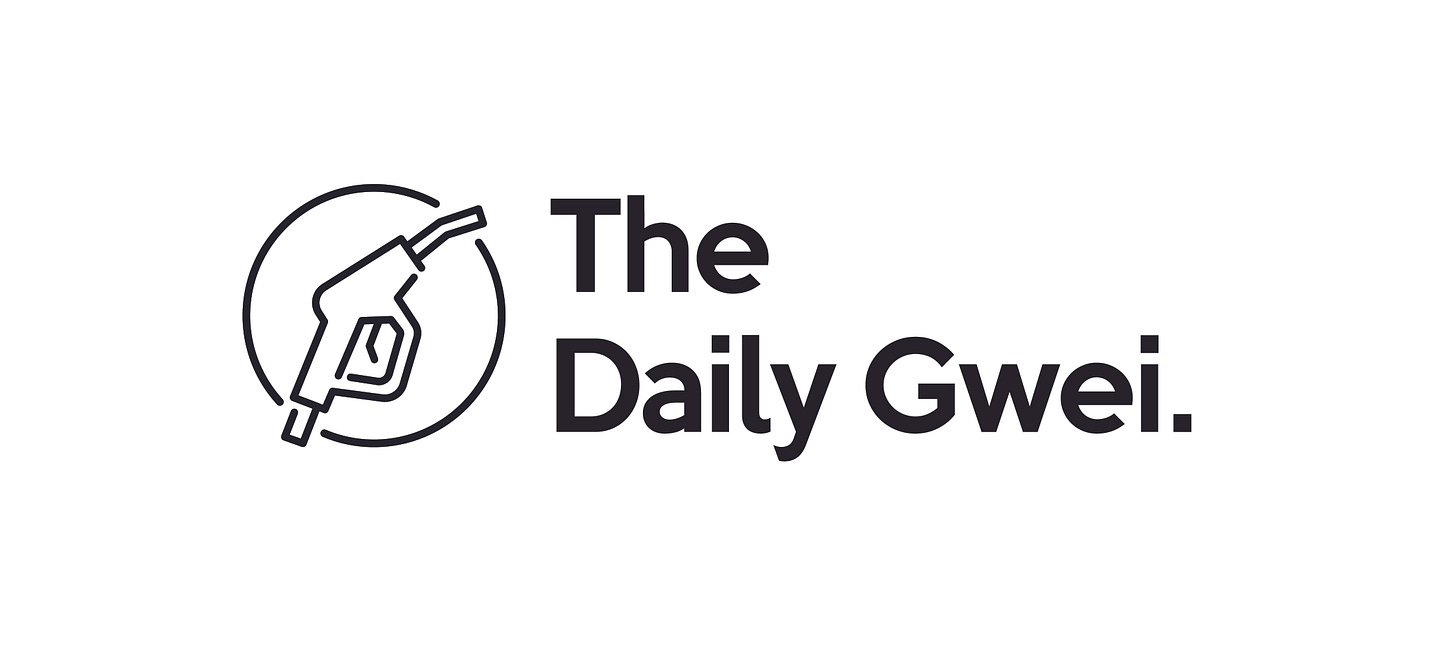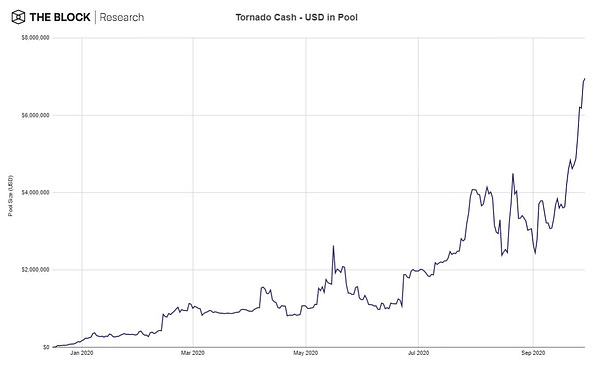Saving Private Ether - The Daily Gwei #85
Learn more about the tools you can use to stay hidden inside and outside of the ether.

Did you know that every time you do anything on Ethereum there is a public and transparent record of it forever? Of course you did (I hope)! Staying private on Ethereum is currently a nightmare and comes with a lot of friction. That’s where privacy preserving tools like Tornado Cash comes in which allows you to mix your tokens to hide your transaction trail.
As you can see in the chart above, Tornado Cash has been steadily growing since it was released to the Ethereum mainnet earlier this year. This is great because the more liquidity Tornado Cash has, the more money that can be mixed using its service. On top of this, the “anonymity set” is also growing which brings with it stronger mixing. If you want to learn more about how Tornado Cash works under the hood, you can head here.
Even though Tornado Cash is seeing some nice growth, I don’t think privacy tools are going to see any sort of mainstream adoption unless they become the default way to interact with the Ethereum chain. I believe this could be achieved by popular wallets enabling private transactions by default - imagine a toggle in MetaMask that lets you switch private transactions on and off (with on being the default). Though the one issue here is that private transactions are normally more expensive than transparent ones (on the Ethereum mainnet) so this isn’t an ideal solution - especially given the high gas prices on Ethereum lately.
That’s where layer 2 comes in - it gives us a chance to make privacy the default at ultra low cost and at great scale. I’ve already spoken about layer 2 technology on Ethereum extensively in this newsletter so I won’t rehash it again in this post but the one area to focus on here would be ZK-STARKs - learn more about that here (warning: it gets very technical). You can also read about an alternative implementation called ZK-SNARKs here and dive even deeper with this master resource list.
Finally, we have extra-protocol privacy preserving tools that are already available for you to use. These include tools such as Tor, the Brave browser with in-built advertisement/tracker blockers, VPNs to hide your IP, various browser extensions to prevent tracking and more. While these tools won’t hide your on-chain activity, they will work to hide your general online footprint as much as possible (if you use the tools correctly) and can help to prevent you from being phished.
In saying all of this, the pessimist in me thinks that most people just simply do not care about privacy or are apathetic towards it when it comes to their activity online (on a blockchain or otherwise). I personally understand the importance of on-chain privacy but there is still too much friction for even a power user like myself to go out of my way to anonymize my activity.
Though, I guess people will probably care a lot about on-chain privacy when the tax office comes knocking with a full history of all of their transactions in hand! Actually, on the topic of taxes and privacy, you can check out Rotki which helps you in both of those areas.
Have a great day everyone,
Anthony Sassano
If you’d like to support my on-going work to bring you a fresh Ethereum-packed newsletter every week day, feel free to make a donation on Gitcoin here (during the current matching round your donations are quadratically matched).
All information presented above is for educational purposes only and should not be taken as investment advice.





